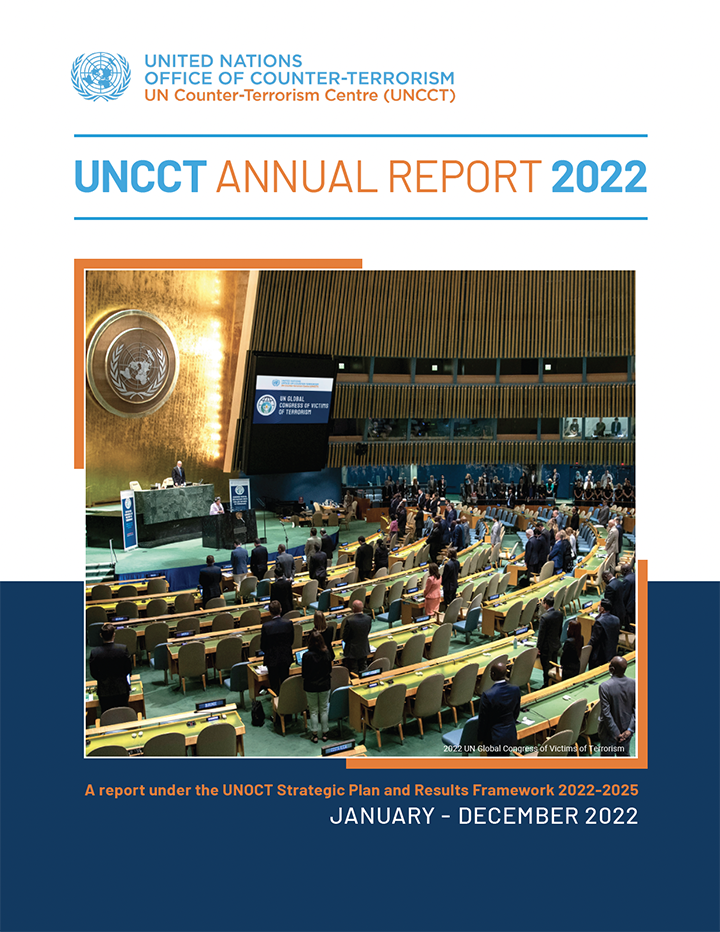مكافحة الإرهاب في آسيا الوسطى
Towards a comprehensive implementation of United Nations Global Counter-Terrorism Strategy in Central Asia - Joint Plan of Action (JPoA)
Central Asia’s Joint Plan of Action to counter terrorism
To enhance national and regional efforts to counter terrorism in Central Asia various stakeholders devised a plan of action to be implemented across the four pillars of the UN Global Counter-Terrorism Strategy. This initiative, guided by the UN Global Counter-Terrorism Coordination Compact (former CTITF), UN Counter-Terrorism Centre and the United Nations Regional Centre for Preventive Diplomacy for Central Asia (UNRCCA), with financial support from the European Union and Norway, spans three phases between 2010 and October 2020.
Implementing the Joint Plan of Action
Phase I (2010-2011) was devoted to the preparation of the Joint Plan of Action (JPoA) for implementing the Strategy in Central Asia. The JPoA was prepared based on a one-year consultative process, during which three expert meetings were held to review the four pillars of the Strategy, identify opportunities, gaps and needs and draw recommendations to devise this joint plan of action.
Central Asian countries reached agreement on the endorsement of the JPoA in November 2011. Kazakhstan, Kyrgyzstan, Tajikistan and Turkmenistan, with Uzbekistan opting for observer status, signed the ‘UN Global Counter-Terrorism Strategy in Central Asia - Joint Plan of Action’ at a High-level meeting held in Ashgabat, Turkmenistan. Afghanistan joined the Central Asian countries later, as an observer, taking into account its geographical situation.
Phase II (2013-2017) was devoted to supporting the implementation of the JPoA through capacity-building workshops. Both phases eventually culminated in the adoption of a Joint Declaration, known as the “Ashgabat Declaration”.
Phase III, launched in 2018, seeks to assist these Central Asian countries to adequately respond to emerging challenges of fighting terrorism and preventing violent extremism in the region, as well as to provide continued and coordinated UN System support to the regional countries in implementing the JPoA.
Capacity-building in the region
The Central Asian countries received capacity building support throughout Phase II and III to advance their understanding of the fight against terrorism and prevent violent extremism. UNCCT together with UNRCCC have organized the following workshops in third project phase:
- Regional workshop 1
- Regional training 2
- Prevention of Violent Extremism coordination meeting
- Eurasian forum on Countering the Financing of Terrorism
- Countering the Financing of Terrorism training
- Border Security and Management training
- Turkmenistan National Strategy
Ashgabat Declaration
The efforts of all parties involved in the JPoA resulted in a High-level Dialogue on the Implementation of the UN Global Counter-Terrorism Strategy in Central Asia. The Dialogue was held in Ashgabat, Turkmenistan, on 13 June 2017, and was chaired by UN Secretary-General António Guterres. At the end of the High-level Dialogue, its 54 participants signed the Ashgabat Declaration, which formalizes the outcome of the review process of the UN Global Counter-Terrorism Strategy regional implementation status and defines the region’s future strategic priorities for the implementation of the Strategy, including through the Joint Plan of Action.
Impact
Central Asian states and the region, as a result of the capacity building and technical assistance received have now an enhanced capacity to fight terrorism and prevent violent extremism in a strategic manner. These countries now also better prepared to respond emerging priority areas identified in the 2017 High Level Dialogue, General Assembly resolution 70/291, and recommendations drawn from the previous phases. They have developed effective policies and best practices to prevent and counter violent extremism through increased understanding about roots of violent extremism, improved access to information and analysis, and enhanced opportunities for exchanging good practises in key priority areas of the JPoA and of the Plan of Action on PVE. The JPoA also ensured cooperation and coordination with regional and international organizations in their efforts to combat terrorism and prevent violent extremism in the region.


